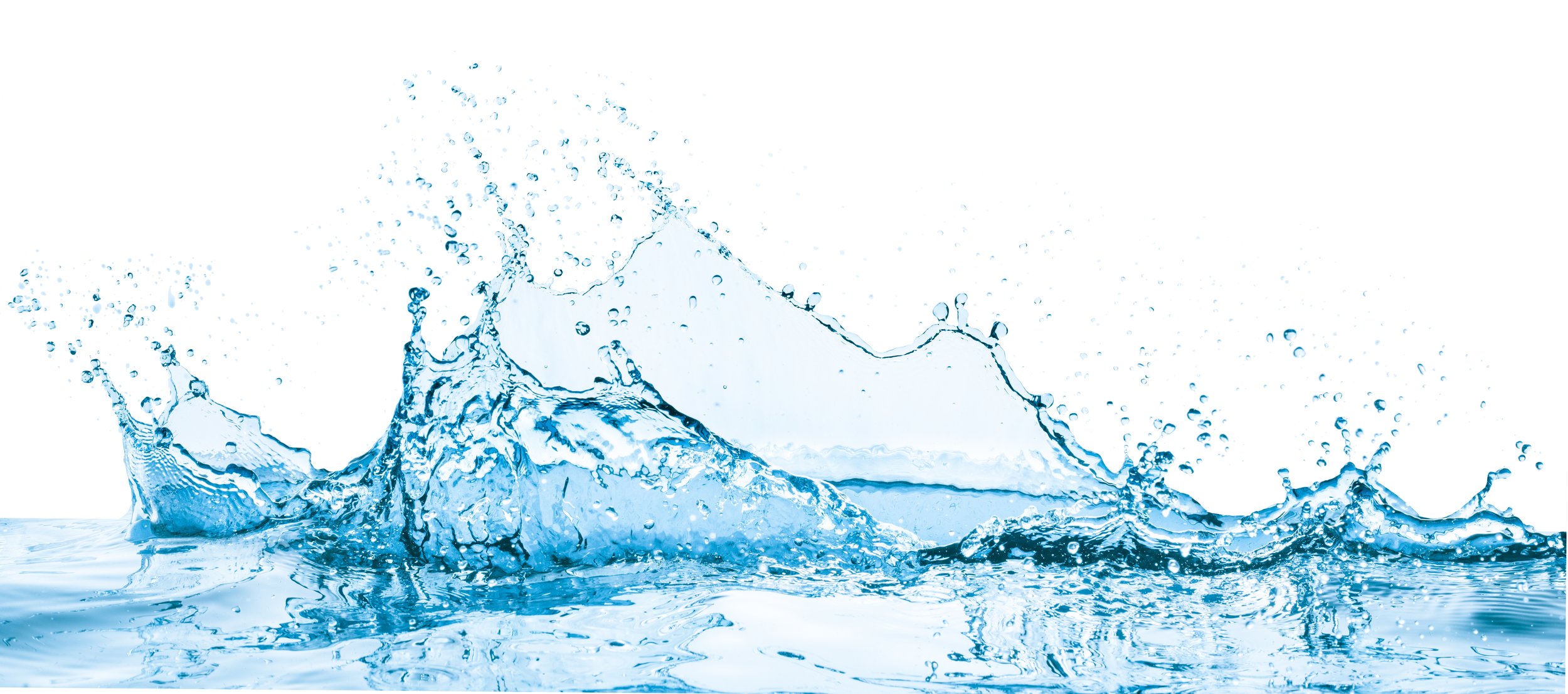
JACKSON SPRINGS WATER ARTICLES
Hydration, Health, Manitoba, and other things
NATURAL VS PROCESSED WATER
When it comes to quenching your thirst, not all water is created equal. How often have you actually considered where your drinking water comes from, how it's treated, or what it contains? Here we explore the differences between reverse osmosis (RO) water, distilled water, and spring water.
The truth about reverse osmosis, distilled, and natural spring water
When it comes to quenching your thirst, not all water is created equal. How often have you considered where your drinking water comes from, how it's treated, or what it contains? Here we explore the differences between reverse osmosis (RO) water, distilled water, and spring water.
Reverse osmosis water
Reverse osmosis (RO) water is made clean by passing it through a special filter that removes harmful substances like ions, unwanted molecules, and big impurities from the water. This makes the water safe to drink by getting rid of things that could harm us. However, this process also takes away important minerals that are naturally found in water. These minerals not only affect the taste of the water, but studies show that having certain minerals in our drinking water can help improve our health. RO water is also usually acidic unless it is treated to add back some minerals.
Distilled water
Distilled water is made by boiling water and collecting the steam in a separate container. Like RO water, it doesn't have the important minerals that are naturally found in water. Because it lacks these minerals, distilled water has a taste that is considered neutral or bland, which many people don't like. The World Health Organization (WHO) has stated that drinking water with low mineral content can negatively affect the body's balance and ability to regulate minerals and water. In other words, it can disrupt the body's natural processes.
Natural spring water
Spring water is derived from an underground source where water naturally rises to the surface. It is naturally filtered through the surrounding terrain. This filtration process can contribute to a rich mineral profile and an alkaline pH. Spring water is often recognized for its crisp and refreshing taste.
Choose a natural spring water with minerals
Water isn't just about hydrating, it's about replenishing and nourishing. As our body’s composition is between 55-60% water, it's about providing your body with the minerals it needs to function optimally. For our overall best health, the choice seems clear.
Why would you choose to drink water that's been stripped of these benefits?
Do yourself a favour and remember that the next time you take a sip, make sure it's not just water - but a source of nutrients as well. Experience the distinctly refreshing taste of a natural spring water with minerals and you'll never go back to processed water again.
Elevate your hydration
DISCOVER JACKSON SPRINGS WATER
THE HEALTH BENEFITS OF DRINKING SPRING WATER
Water is essential to human life. Approximately 60% of the total weight of most individuals is water. Water is involved in most body functions, regulating body temperature, transporting nutrients and oxygen to all cells in the body, moistening oxygen for breathing and helping the body absorb and synthesized essential nutrients.
THE HEALTH BENEFITS OF DRINKING SPRING WATER
The consumption of bottle water has increased by 400% (2) in United States and Canada alone, and the worldwide market of bottle water is worth over US $5.7 billion (4). Bottle water has taken an important role in the diet of North Americans, because most people believe that it is micro-biologically and nutritionally superior then tap water. Several health benefits have been attributed to the mineral and trace element content of spring waters. However, it cannot be assumed that all bottle waters provide the same health benefits due to the variation in their mineral content from manufacturer to manufacturer. The objective of this report was to identify the potential benefits of our spring water (Jackson Springs Natural Premium Spring Water) in the human body in terms of mineral composition.
1. Water for Life
Water is essential to human life. Approximately 60% of the total weight of most individuals is water. Water is involved in most body functions, regulating body temperature, transporting nutrients and oxygen to all cells in the body, moistening oxygen for breathing and helping the body absorb and synthesized essential nutrients. Our bodies need a certain amount of water intake on a daily basis to function appropriately; the minimum amount is about one liter. Water requirements vary with activity and age, but most active persons need two to three times the basic amount. Basic fluid intake serves to replace the fluids which are required to perform our normal body functions. If we consume less or lose more fluid than needed, the net result is dehydration. More generally, dehydration is referred to as “the excessive loss of water from the body.” The fluid loss may even be severe enough to become life-threatening.
2. Spring Water Consumption and Health Implications
Spring water is defined by the Canadian Bottle Association as natural water which shall be collected from an underground source and have total dissolved solids content not exceeding 500 ppm. Spring water is characterized by its purity at source, its content of minerals and trace elements (3). Magnesium, calcium, sodium and potassium are the main minerals found in spring waters (2,8). The World Health Organization (8) stated that the incidence of osteoporosis and heart diseases might be notably reduced by drinking waters with reasonable concentrations of magnesium and calcium. However the consumption of spring waters with high content of sodium may induce hypertension in some populations. (2) Jackson Springs Natural Premium Spring Water is sodium-free.
2.1 Minerals significance
2.1.1 Magnesium: Magnesium is the fourth most abundant mineral in the body and is essential to good health. Approximately 50% of total body magnesium is presented in bone. The other half is found predominantly inside cells of body tissues and organs. Magnesium is needed for more than 300 biochemical reactions in the body. It helps maintain normal muscle and nerve function, keeps heart rhythm steady, supports a healthy immune system, and keeps bones strong (5). It is estimated that the body requires between 220 and 410 mg of magnesium on a daily basis. Studies have shown that some populations in North America do not meet the daily requirements of magnesium consumption (6). Magnesium deficiency may encourage coronary artery vasospasms, leading to myocardial ischemia and sudden death (1).
2.1.2 Calcium: The standard adult’s weight is made up of about two per cent calcium. The bulk of this mineral is found in the skeleton and teeth; the rest is stored in the tissues or blood. Calcium is vital for healthy teeth and bones and also plays a crucial role in a range of body functions, such as the health and functioning of nerves and muscle tissue. As we age, the skeleton loses calcium. Women lose the most calcium from their bones in the five years around the age of menopause. However, both men and women lose bone mass as they grow older and should increase the amount of calcium in their diet (800 mg per day). Low intakes of Ca, contribute to rickets in children and osteoporosis in women worldwide (8). A diet high in calcium cannot reverse age-related bone loss but it can slow down the process.
2.1.3 Sodium: In the human body, sodium is an electrolyte that plays an essential role in regulation of fluids and blood pressure. Many studies in diverse populations have shown that a high sodium intake is associated with higher blood pressure.
However, most evidence suggests that many people at risk for high blood pressure reduce their chances of developing this condition by consuming less salt or sodium (7). The average sodium intake in North America is estimated to be between 4000 and 6000 mg. per day. The American Heart Association has recommended reducing the intake levels to less than 3000 mg per day (2).
3. Jackson Springs – The Healthier Spring Water
Garzon and Eisenberg (1) analyzed the content of magnesium, sodium and calcium in 48 commercially available European and North American spring waters. They found a great variation in their mineral content with ranges from 0 to 126 mg per liter for magnesium, from 0 to 1200 mg per liter for sodium, and 0 to 546 mg per liter for calcium. Since the mineral content of spring water varies remarkably, it would be erroneous to state that all spring waters are beneficial to human health.
A recent mineral analysis showed that “Jackson Springs Premium Spring Water” had four times as much magnesium as the median concentration found in 28 North American spring waters (2) (Table 1). In addition, the concentration of calcium was five times higher in Jackson Springs Water than that detected in the same number of North America Spring waters.
Drinking “Jackson Springs Natural Premium Spring Water,” which is high in magnesium and calcium, may help individuals achieve the recommended daily allowances of these essential minerals. Furthermore, there is a substantial body of epidemiological data supporting the inverse relationship between calcium and magnesium concentrations in drinking water and ischemic heart disease mortality (8). Similarly, consumption of “Jackson Springs” waters rich in calcium and magnesium may also provide the same health benefits in our consumers. Consumption of “Jackson Springs Natural Premium Spring Water” have the added benefit of having50% less sodium than the median North American Spring water (2), thereby reducing the intake of sodium while gaining the benefits of a spring water, a health benefit particularly important in people with hypertension conditions.
The high calcium, magnesium and low sodium concentrations of our spring water qualify it as ideal because these mineral proportions maximize the potential beneficial effects of our product on human health (2). In keeping with the study of Garzon and Eisenberg (1) and the mineral contents of our water, it can be said that Jackson Springs Natural Premium Spring Water is the best consumer choice taking in consideration of the potential benefits associated with its consumption.
ELEVATE YOUR HYDRATION
DISCOVER JACKSON SPRINGS WATER
Washed Out
Bottled waters aren’t created equal.
In fact, the H20 in your water cooler can be draining you of essential minerals.
Experts weigh-in on how your water can be affecting your health. - Rachel Naud
“Bottled waters aren’t created equal.
In fact, the H20 in your water cooler can be draining you of essential minerals.
Experts weigh-in on how your water can be affecting your health.
”
Joanne Holt thought she was doing everything right when it came to her health. The 46-year-old personal trainer worked out regularly, had healthy eating habits and took recommended doses of vitamin C, D and B, in addition to magnesium and fish oil. So why did she feel so run down?
“I felt depleted,” she says. “And I wasn’t sleeping well, either.” Turns out, Holt was drinking the wrong water.
Like many Winnipeggers, Holt was purchasing bottled distilled water from a major water supplier in the city thinking it was a healthier option than tap water. What she didn’t realize was that her water was stripped of trace minerals such as calcium and magnesium, and, in turn, was putting her health at risk.
WHAT’S IN – OR OUT – OF OUR WATER
North Americans have adopted the culture of drinking bottled water as a healthier way of living. It’s this notion that the bottled variety is superior to that of tap water that has grown the bottled water business to a tune of $5.7 billion US. And although, in many cases, this is true, what many Canadians don’t know is that not all bottled water is created equal.
Many companies use reverse osmosis or distillation processes to remove lead and other contaminants to make tap water drinkable. However, in doing this, almost all of the water’s minerals are stripped away. What this means? Drinking it can cause more harm than good to your body.
In fact, according the World Health Organization, drinking low-mineral water can lead to major health risks including coronary heart disease, gastric ulcers and complications with pregnancy such as newborns afflicted with jaundice, anemia and even growth disorders.
This is why in its “Guidelines for Drinking Water,” the World Health Organization recommends drinking water that contains a moderate mineral profile of at least 250 parts per million.
MUST-HAVE MINERALS
“Having minerals in our water helps our body function,” says Wanda Andrews, nutritionist and owner of Nutritional Sciences in Winnipeg. “They give us energy, help us heal and support healthy immunity growth.”
Andrews says minerals, such as calcium, are especially important for women going through hormonal changes associated with menstruation, pregnancy and menopause.
“Women have more issues with calcium absorption because of hormonal changes,” she says. “During menopause, women also have higher cholesterol levels, and drinking water with fibre such as flax or psyllium husks can bring cholesterol levels down and act as a preventative to reduce cardiovascular disease.”
Moreover, magnesium, according to the World Health Organization, helps maintain normal muscle and nerve function, keeps heart rhythm steady, supports a healthy immune system, and keeps bones strong.
And although these minerals can be found in the foods we eat, as well as in supplements, by drinking de-mineralized water, the benefits of doing so can be, well, washed away.
PUT SOME SPRING IN YOUR WATER
When searching for a mineral-rich water, look for the term ‘spring water’ on the label.
Spring water is defined by the Canadian Bottle Association as natural water which is collected from an underground source and is characterized by its purity at the source, its content of minerals and trace elements, including magnesium, calcium and potassium. According to The World Health Organization, the incidence of osteoporosis and heart diseases might be notably reduced by drinking waters
with reasonable concentrations of magnesium and calcium. However, the consumption of spring waters with high content of sodium may induce hypertension in some populations.
This is why Chris Garrick, owner of Jackson Springs Natural Premium Spring Water in Winnipeg, ensures his bottled spring water is sodium and fluoride free.
The water, which is sourced from an artesian spring located in the Sandilands Provincial Forest, southeast of Winnipeg, contains five times more magnesium and four times more calcium than any other bottled water in North America, and has also been awarded the Gold Medal by the Prestigious Berkeley Springs International Water Tasting as the “Best Tasting Water” in the world.
“We’re all about natural water,” says Garrick. “We take precautions to ensure our water is safe and includes healthy minerals. It’s the minerals that contribute to the taste and that’s what we’re known for.”
It’s the refreshing and smooth taste that has Holt’s whole family hooked on Jackson Springs Water – including the dog. “We are drinking so much more water than before,” she says. “I have my energy back and after I work out, I don’t feel like I’ve hit a brick wall anymore. And what I wasn’t expecting was the compliments I get now. People tell me by skin is much softer and clearer. So now I look as good as I feel.”









